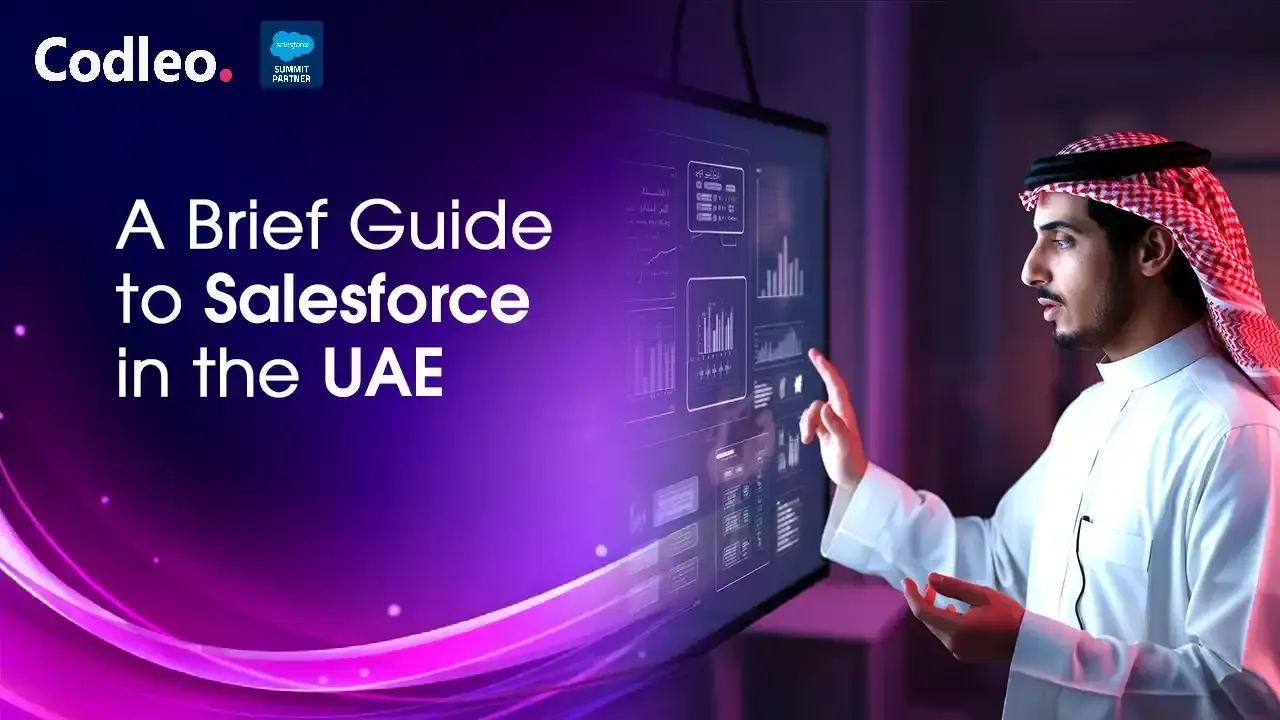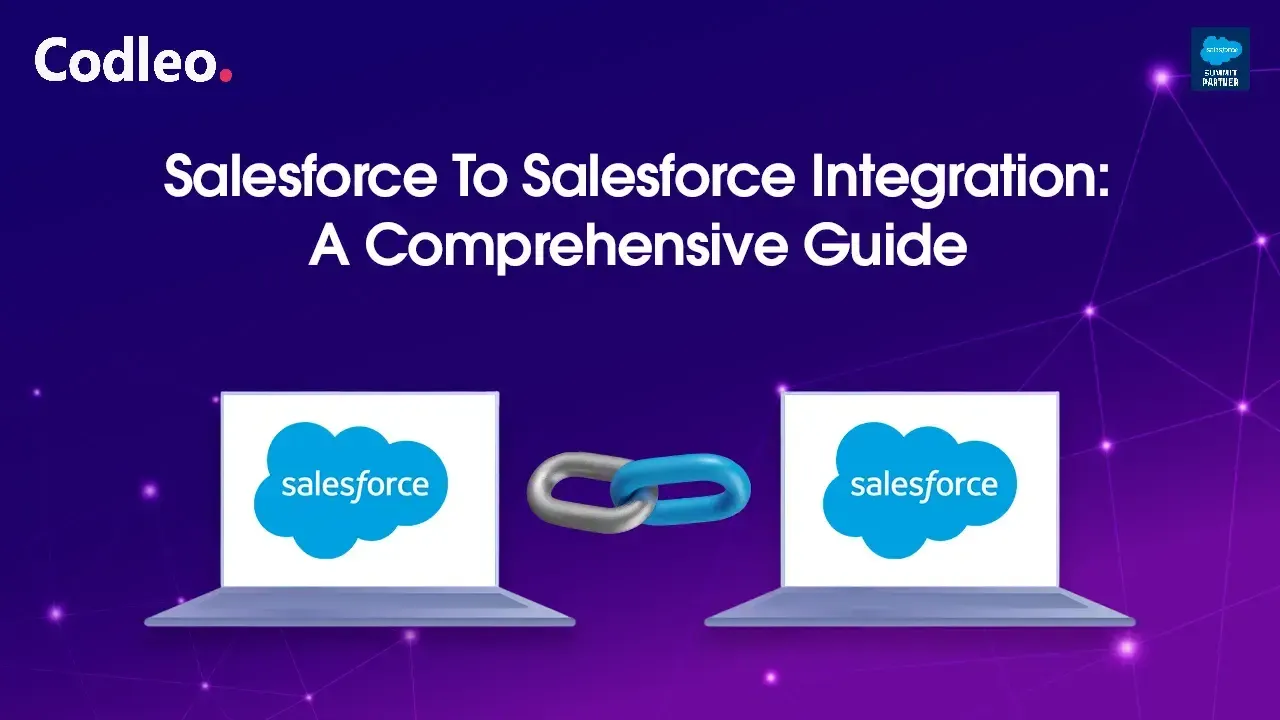Publish date:
“You must always examine what’s working, evolve your ideas, and change the way you do things.” ― Quote by Marc Benioff, Behind the Cloud: The Untold Story of How Salesforce.com Went from Idea to Billion-Dollar Company-and Revolutionized an Industry
The Salesforce universe is expanding in emerging markets like India as a major employer. As per salesforce, under the guidance of the able leadership of India's head Ms. Arundhati Bhattacharya, former MD of State Bank of India, they hope to create over 5 lakh jobs in India. Wow. It is a big number. For those who have big dreams of an exciting and challenging career in software with growth opportunities and the big moolah, it is Salesforce. With certifications under the belt, the next step is to land assignments as trainees/employees in companies that are either deploying Salesforce as their team members or for licensed vendors / partners like Codleo. To help the bright sparks of India get their dream jobs/breaks, we are listing below some top questions asked during job interviews.
Q. What are the top / most important benefits of a tech tool like Salesforce?
Answer - Salesforce is a Cloud SaaS platform (Software-as-a-service) which means users can access it via a web browser, as opposed to a desktop application. Cloud systems have many advantages over traditional computer systems that need a vast cache of server power to operate. Its various benefits include:
It is cheaper as there are no costs involved for infrastructure and personnel.
All software upgrades are managed and looked after by cloud computing providers such as Salesforce. New features and improvements are free and don’t require any effort on the part of the user/business.
They can be accessed from anywhere, anytime, on any electronic device with internet service. Now one can be mobile and be productive.
No threat of data loss due to accidents, errors, shifting offices, etc
Q. Are you able to list/point out the main differences between Sales Cloud & Service Cloud?
Answer – Both of these products are primary CRM platforms and are used by many brands/businesses. They are two distinct products with unique features of their own.
Sales Cloud – This tool has been launched to assist companies with their sales cycle. Hand-holding a prospective customer on a journey from qualifying them through the Lead object to changing them into an Opportunity where the main sales process occurs. It has a plethora of features to enable this process, from quoting to forecasting.
Service Cloud – Service Cloud assists brands with their client support process. Clients begin a support process by emailing, calling, or submitting a web-based form. Once this issue/ticket has been raised in Salesforce, employees can use features such as a Knowledge base to locate replies to queries, milestones to ensure SLA (Service Level Agreements) are met, and features like live chat to engage with clients to assist them.
Q. List some other products in Salesforce (apart from their CRM)?
Answer – Salesforce products include non-profit cloud for NGOs, marketing cloud, Slack for communication & collaboration, sales cloud, and Mulesoft for connecting systems using a plethora of out-of-the-box connectors.
Q. Give an example of a custom App that can be created on a Salesforce platform?
Answer - Salesforce empowers us to curate unique applications on the platform. Examples of these are a human resource app to help the team oversee job postings and applicants in a simple manner.
Q. Tell us about the differences between declarative and programmatic customizations?
Answer – Customisations are of 2 types = declarative and programmatic.
Declarative customizations are point-and-click. These allow laypeople to create robust customizations by using a wizard to make custom fields, automation, and tables of data.
Programmatic customizations are created using code. Whilst you can do almost anything with declarative customization, there is a ceiling to more complicated solutions. Apex is Salesforce’s coding language and comes into play if the needs are particularly complicated.
Q. Tell us about the Salesforce Lightning Experience, and how is it beneficial to companies.
Answer - Salesforce Lightning was primarily a new UI launched in 2015. Salesforce focused the design around a modular experience that lets Salesforce Admins be in control of the layout of all pages. This translates to enhanced productivity of the users with the help of new features, as well as a simple UI to traverse. Almost all pages of Salesforce Lightning Experience can be customised. It begins with the home page, and moves onto record layouts and dashboards, all can be personalised to meet specific needs.
Q. What are objects in Salesforce and how are they used?
Answer - There are two types of objects in Salesforce, standard, and custom. Standard objects are those that come with Salesforce products. For example, in a majority of Salesforce products, Accounts & Contacts come as standard objects.
Custom Objects are those that are created by the user. These are the objects that can be created as your foundation for building custom applications. They can be built as your building blocks of personalized apps.
Q. What do you know about the Salesforce Platform (previously known as Force.com), and how does it help businesses?
Answer – An important USP of Salesforce CRM is its platform (earlier known as Force.com). This lets users build robust customizations on top of Salesforce’s products, that let users customize apps to meet their / the business’s precise needs. These customizations are made by clicks and not codes. This increases their appeal and ease – of – use among businesses.
Q. Name the app store that belongs to Salesforce? Have you used any apps from it?
Answer – Appexchange which has around 4000 products so far.
Q. How are changes tested in Salesforce before being moved to Production?
Answer – All testing is carried out in a feature called the sandbox. It duplicates the Production configuration, providing a safe environment to test amendments and execute new features.
Have you ever been posed these questions? If yes how did you fare in them? Codleo Foundation is always offering free online courses on Salesforce administration and development where you learn from experienced & certified personnel. Have you signed up for them in the past or would like to in the future?
These above-mentioned 10 questions are just an appetizer. There are a lot more questions that can be posed during an interview (or more rounds) while trying to bag a job as a salesforce trainee/administrator. If you know the answers to the above questions, send us your replies. We would love to hear from you. That’s all we have for today’s educational blog.
Also Read: INVEST IN IN-HOUSE TALENT TO PROMOTE DIVERSITY IN YOUR ORGANISATION















